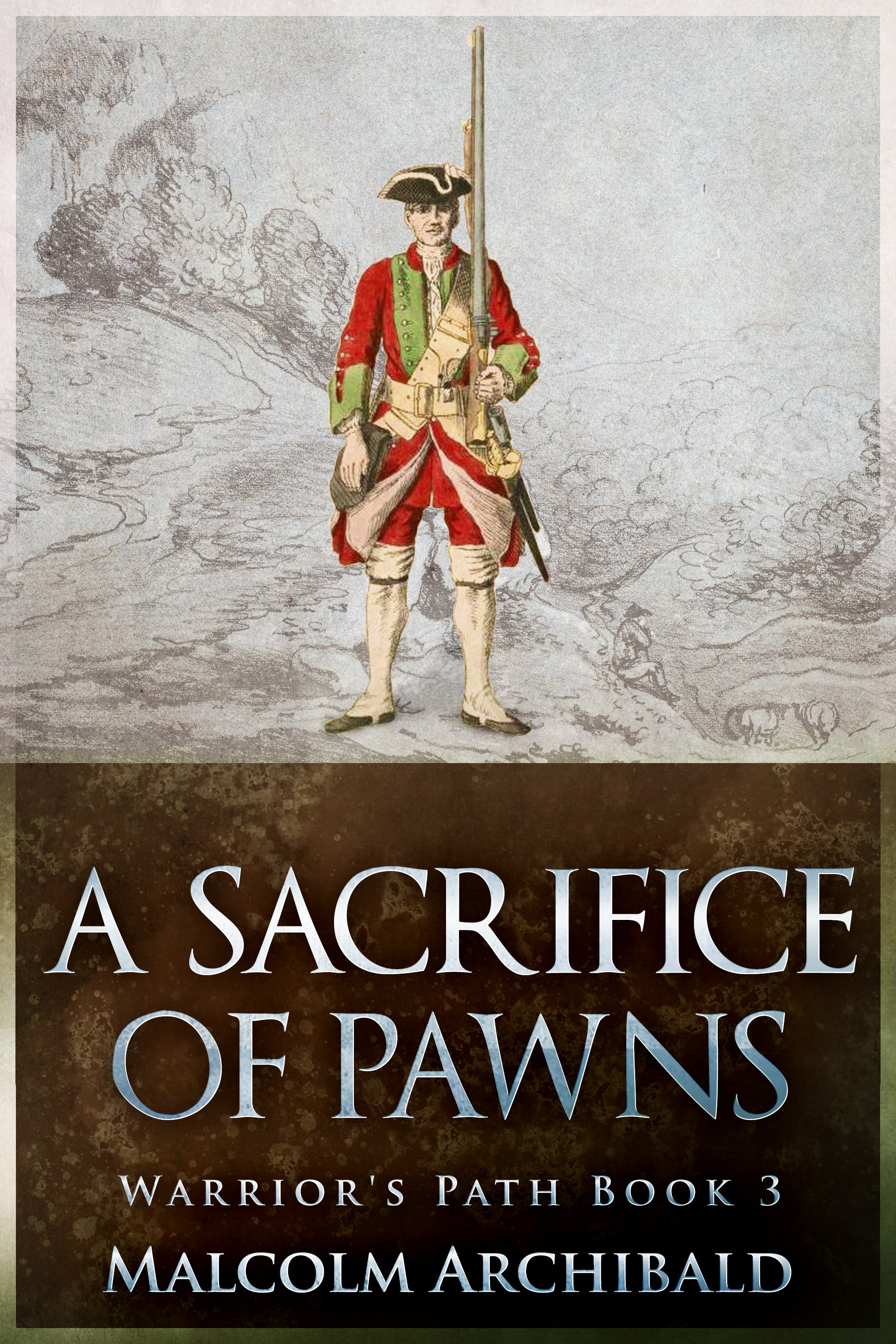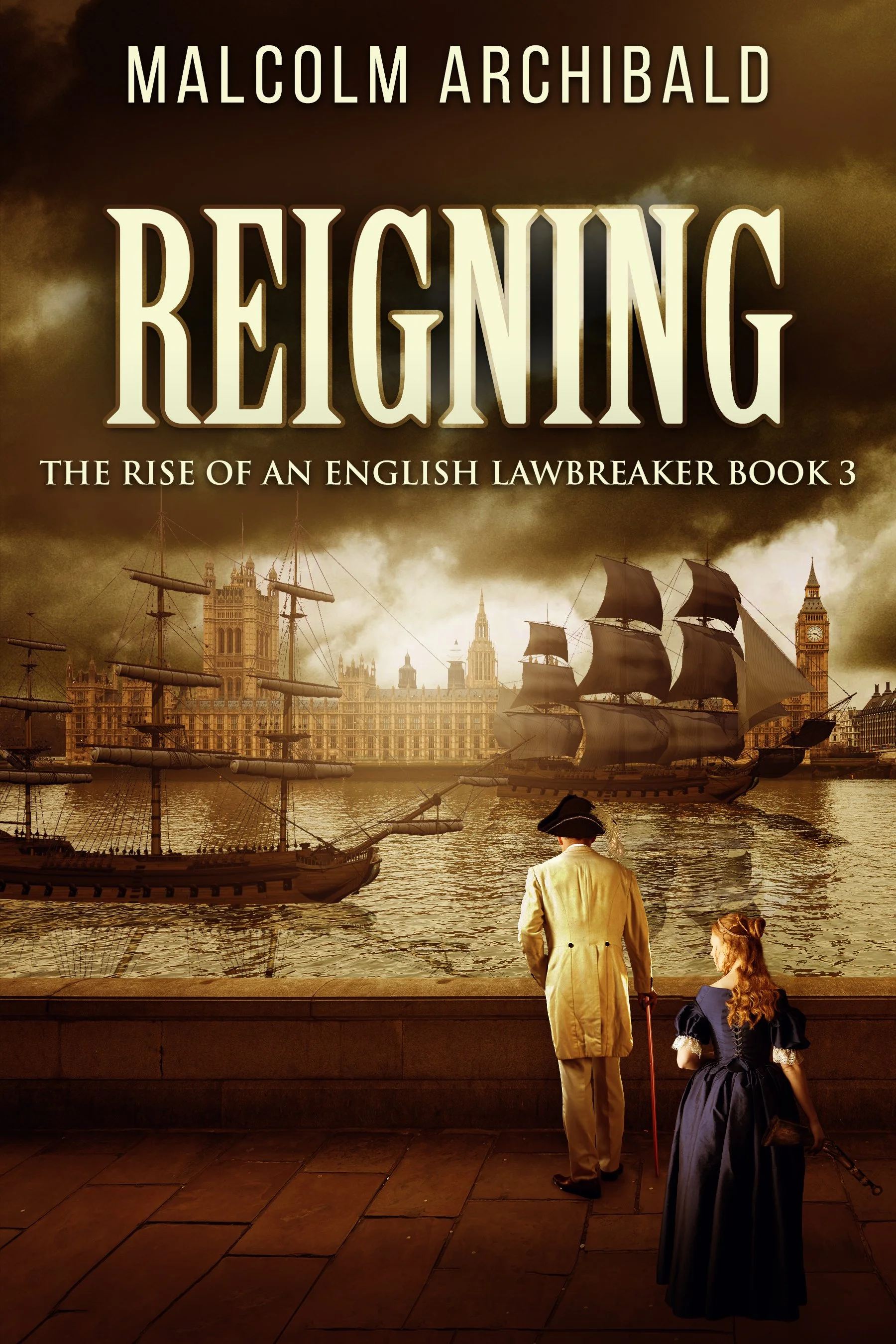The Bay of Deceptive Mist
Book summary
In "The Bay of Deceptive Mist," Robert "Rab" Munro's tumultuous life at sea takes an unexpected turn when he encounters a cryptic card bearing religious verses and a castaway with a mysterious challenge. As the Grissel Jaffray navigates both physical and spiritual storms, Munro grapples with the belief that Death awaits him ashore. The voyage brings to life the Seven Deadly Sins, both within the crew and within himself, blurring the line between superstition and reality with each fateful choice.
Excerpt from The Bay of Deceptive Mist
“Awa ye go, ye blethering skite!” A woman screamed the words as she staggered from a Dock
Street public.
Rab Munro watched without interest. Arguing couples were as common as drunken seamen in the maritime quarter of Dundee. He thrust his pipe between his teeth, searched his pockets for tobacco and groaned when he remembered he had finished his last quarter ounce.
Munro returned the pipe to his pocket and glanced up. The pigeons huddled in a noisy flock, puffed up against the sleety rain as they huddled in the gothic monstrosity above Munro’s head. Although officialdom termed the structure the Royal Arch because it commemorated the visit of Queen Victoria to Dundee, most people called it the Pigeon’s Palace. Officials and the general public alike cursed the myriad birds that made the Arch their home. Like the pigeons, Munro used the Arch as a makeshift shelter, listening to the wind wailing through the rigging of the ships in the neighbouring docks. Pulling the collar of his threadbare jacket up to protect the back of his neck, Munro walked along the edge of Victoria Dock, inspecting the ships.
I need to find a ship. I can’t remain onshore.
Two of the vessels were jute carriers, recently back from the east, with evidence of a tropical storm in their patched canvas and their holds probably crawling with rats and vermin. Munro passed them without a second glance, knowing it would be weeks, perhaps months before they were unloaded, refitted, and ready for sea. A third was Arctic Fox, a Greenlandman returned from the north with ice scars on her hull and the stench of rotting whale blubber hanging over her. Munro knew Arctic Fox well, having served two trips in her to the ice and back. As he paused, a ship’s watchman watched suspiciously, ready to move him along.
She must have had a bumper catch to return early in the season. That means big oil and bone bonuses for her crew.
On the opposite side of Victoria Dock, a pair of Baltic brigs waited to unload their cargo, and a collection of fishing boats swung at sullen anchors. Munro allowed his gaze to pass over each vessel, unconsciously noting their names, condition, and the likelihood of obtaining a berth. He discounted the fishing boats, for they would have a fixed crew, probably of family members or close friends, while their trips were too short to interest him. The Baltic brigs were more of a possibility.
Munro strolled past with his eyes busy, analysing every detail of the vessels in the dock. He felt instant sorrow at seeing these creatures of the open sea confined in such a small space. Their masts and spars, stripped of sails, looked naked and skeletal, with the faint breeze whining through the rigging, sounding like prisoners pleading for release.
One ship floated alone, carefully tied up between the Baltic brigs and the fishing boats. Munro sat on a bollard, took his empty pipe from his pocket, and surveyed the vessel through critical eyes.
With her three masts raking aft and a long bowsprit thrusting forward, the ship boasted a clipper bow and promised speed, which most shipmasters and all owners valued as a prized commodity. Jamming his pipe between his teeth, Munro walked around the dock for a closer inspection. He moved slowly with the slight sway that told of long months at sea, stopping as he neared the clipper.
Grissel Jaffray was brightly painted in yellow on the ship’s black stern. Munro nodded, recognising the name; she was a Dundee-built flyer, one of a pair from Dargie and Milne, a now-gone shipyard. Munro remembered one of the owners had died during the launch of their final vessel, a clipper named Thomas Weir, which had a run of bad luck and disappeared at sea. The more superstitious of the nautical fraternity claimed Thomas Weir had put a curse on the shipyard.
Halting at Grissel Jaffray’s stern, Munro surveyed her, sucking at his empty pipe.
Glancing aloft, Munro saw Grissel’s masts towered to the damp sky, freshly painted and with new rigging, all ready for sea. He stepped to her bow and frowned when he saw a patched scar where her figurehead should be.
What happened to old Grissel? Did you lose her in a storm? Or did your master run you aground somewhere, Grissel? A ship without her figurehead is like a woman without a face or a man without a soul.
Munro stepped back, nodding in approval at the appearance of the clipper, save for the loss of her figurehead.
You’re a possibility, Grissel, if you’re sailing soon. I wouldn’t have chosen to sign articles for your sister ship, though; she could be covered in gold leaf and offer double wages, and I would not have sailed in Thomas Weir.
Munro stepped away as the watchman on the closest of the Baltic Brigs leaned over the taffrail. “Looking for a berth, mate?”
“Maybe,” Munro said cautiously. A Baltic Brig would be a fine stopgap. I’d escape the land for a while before the winter ice. He glanced over his shoulder, knowing the hooded figure was there, waiting for its opportunity. Munro returned his attention to the watchman. “Do you have a berth?”
The watchman ran a careful eye over Munro. “Aye. We might have one for you here if you’re a seaman.”
Munro examined the brig. Her name, Mary Grey, was prominent on her stern in white letters. “Where are you bound?”
“Riga, with general goods, to return with a cargo of flax before the ice closes in.” The watchman eyed Munro. “What was your last ship?”
Lady Lawson, Munro said.
“A coaster carrying coal from Fife to Aberdeen,” the watchman nodded. “And before that? You have the look of a deep-water man.”
Arctic Fox, Munro said laconically, nodding to the whaling ship on the opposite side of Victoria Dock. “Last season. I’ve been coasting this last year or so.”
“You’ve been a Greenlandman, then.” The watchman did not move from his place on the taffrail. “What rank?”
A harpooner or other specialist might have forgotten the requisite skills to sail in a Baltic brig. The watchman was testing Munro with every question.
“AB,” Munro said. AB meant Able Bodied Seaman, the backbone of any ship, with all the maritime skills that shipmasters and mates required. A deep-water vessel could never have too many ABs.
The watchman nodded, trying to hide his interest. “You’ll have your certificate of discharge.”
“I have,” Munro said. “It’s marked VG.” VG - very good - meant Lady Lawson’s master considered him a good seaman who did not cause trouble.
“If you show it to Mr Bruce at the shipping office tomorrow morning, you can sign articles and come aboard.”
Munro removed the empty pipe from his mouth. “I’ll maybe do that,” he said.
“You’ll have your dunnage with you.”
Munro gestured over his shoulder with the stem of his pipe. “It’s with Lawson’s Colliery Company. I’ll pick it up when I find a ship.”
“Your pipe’s empty. Here,” the watchman carefully extracted a twist of tobacco from his pocket, cut half an inch and tossed it over.
“Thanks, mate,” Munro acknowledged. He looked up at the steadily increasing rain. “I see Grissel’s back.”
“Aye,” the watchman agreed, glancing at the clipper. “She’s a fine ship if you don’t mind her bucko chief mate.”
Munro began to stuff tobacco into the bowl of his pipe. “A tartar, is he?”
“Bully Anderson. You might know the name. He’s a gross-grained hectoring monster of a man, a regular bashaw of the seas.”
“I’ve heard of him,” Munro agreed. Bully James Anderson’s name was known wherever British seamen sailed, which meant every ocean and port in the world. He was as brutal as any Down Easter mate in the old American blood boats, known for enforcing his own brand of discipline with fist, boot, or marline spike. Munro had wondered why such a beautiful vessel was still in dock, but Bully Anderson’s reputation may have contributed to the delay.
Munro scratched a match, turned away from the wind, and applied the flame to the tobacco in his pipe. “I won’t be sailing with Grissel.” He lifted a hand in acknowledgment, drawing breath through the stem until the tobacco glowed red. “Thanks for the bacca.”
The watchman nodded, pulled his bonnet further down his forehead, and turned away, deliberately avoiding looking at the clipper astern. “Mr. Bruce is the managing owner, mind. He’ll see your documentation.”
Munro rechecked the brig’s name as he walked through the Royal Arch into Dock Street. Mary Grey. I’ll remember that. He touched the pendant that swung from his neck, feeling the embossed figure who protected him. We’ll be back at sea soon, my Lord Poseidon.
Munro did not know what propelled him away from the sea. His feet seemed to follow their own path until he was in the Overgate, one of the principal routes leading from central Dundee to the west. Munro heard the singing as he strode along the street, looking for a public house or cheap lodgings to spend the night. He stopped under a flickering gas light, ignoring the water that wept from the glass bowl and the tall policeman who watched him from under frowning brows.
Secure under the shadow of the tall steeple of the City Churches, the simple sign read Tally Street. As Munro looked up, he saw a single star above the tower, flickering to him above the drifting smoke from a thousand chimneys. For a moment, Munro wondered at the meaning of that lonely bright speck, but then he heard somebody singing and wondered if there could be a public nearby or perhaps a music hall.
No, Munro shook his head. That’s the wrong sort of music.
Munro stepped away from the suspicious eyes of the policeman, heading further into Tally Street. The noise came from an undistinguished building with windows like arrow slits and a heavy, open door. A hand-painted sign on the wall said Methodist Chapel in plain black letters on a white background. An elderly man stood just within the doorway with a slight smile on his unshaven face and a Tam o’ shanter bonnet at an acute angle over his left eye.
He cocked an eyebrow at Munro. “Are you going in, son?” His voice sounded like an old door creaking open, yet his eyes were friendly.
Munro hesitated. The building was warm and welcoming, with the old man inviting him with a smile. It was not quite what Munro had hoped for, but it was better than a cold night alone in the street. He listened to the singing that rolled into the damp road from the interior.

















Praesent id libero id metus varius consectetur ac eget diam. Nulla felis nunc, consequat laoreet lacus id.